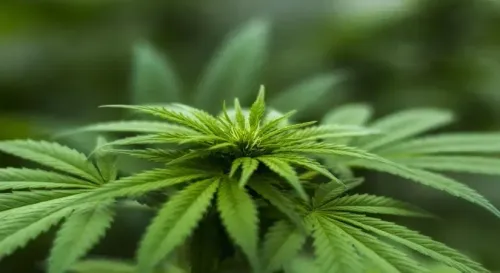Has South Korea's Money Supply Increased for the Second Month?

Synopsis
Key Takeaways
- Money supply rose for the second month in South Korea.
- M2 reached 4,279.5 trillion won in May.
- Investment in funds increased due to stock market recovery.
- Banks are expected to tighten loan criteria in Q3.
- Demand deposits fell by 2.3 trillion won.
Seoul, July 15 (NationPress) The money supply in South Korea experienced an increase for the second consecutive month in May, fueled by heightened investments in funds as the stock market showed signs of recovery, as per data released by the central bank on Tuesday.
The M2, which serves as a critical indicator of the money supply, was recorded at 4,279.5 trillion won (US$3.09 trillion) in May, reflecting a 1 percent rise from the previous month, according to preliminary figures from the Bank of Korea (BOK).
This marks the second month of continuous growth. The M2 figure encompasses cash, demand deposits, and other easily convertible financial instruments, as reported by Yonhap news agency.
Among the components, securities saw an increase of 16.4 trillion won, money trusts grew by 8.3 trillion won, and savings deposits allowing free withdrawals went up by 6.1 trillion won.
A BOK official stated, “With the stock market recovering, beneficiary certificates, especially those linked to equity-type securities, have surged.” The influx into savings deposits with free withdrawals was attributed to funds designated for upcoming fiscal expenditures by local governments.
Conversely, demand deposits decreased by 2.3 trillion won as some dormant funds were utilized for investments in light of the asset market's recovery, the official noted.
Additionally, a survey conducted by the central bank indicated that South Korean banks are likely to tighten their lending criteria for households in the third quarter, as the government aims to address escalating household debt and rising home prices.
The index reflecting banks' lending attitudes fell to minus 17 for the July-September duration, down 4 points from the prior quarter, based on a poll involving 203 financial institutions carried out by the Bank of Korea (BOK).
A score below zero signifies that the majority of lenders plan to tighten their lending standards.
According to a BOK official, “Lending requirements for both mortgages and unsecured loans are anticipated to become stricter, following the implementation of tighter debt-to-service ratio (DSR) regulations in July and additional household debt management strategies introduced on June 28.”










